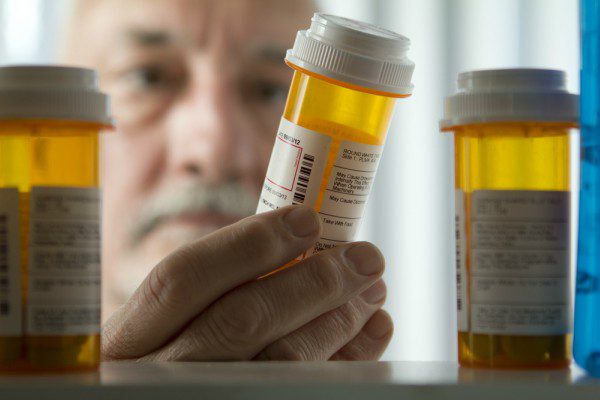Defined as people born between 1946 and 1964, the baby boomer generation makes up 30 percent of the population in the US.1 If retirement age is 65, we can assume that most baby boomers are still working, still earning wages. In fact, an estimated 10,000 baby boomers will be retiring every day until 2029.2
The term baby boomer generation derives its name from the radical spike in births at the end of World War II. This generation has been closely linked to consumerism and advertising efforts as the boom in births immediately led to an increase in the need for baby care goods as well as a high demand for consumer goods.
Because of the enormity of this population group, it is no surprise that boomers are susceptible to the drug epidemic in our society. The rise in substance abuse in the baby boomer demographic presents unique challenges both to the medical and addiction specialist community.
Substance Abuse Risk Among Boomers
While it is shocking to see this fact, it’s true: baby boomers are using drugs at higher rates than teens. According to government estimates, more than 5.7 million people over the age of 50 will need substance abuse treatment by 2020.3
Dr. Barbara Krantz, a medical researcher and addiction specialist, notes that baby boomers frequently abuse a combination of prescription pain relievers (opiates/opioids), tranquilizers (benzodiazepines) and alcohol. This combination can lead to both an accidental drug overdose and death.4
Many factors influence substance abuse in baby boomers. The de-stigmatization of drugs in the 60s and 70s left a more permissible perspective about drug use in this generation, even than more recent generations. In addition, substance abuse and addiction may not be as readily detected in older individuals, which makes it critical for baby boomers to understand the realities of drug abuse and addiction facing their generation.
Baby Boomers and Alcohol Abuse
 Alcohol abuse is a major concern for the baby boomer generation. In 2015-16 more than half a million people aged between 55 and 74 were admitted to hospital with an alcohol-related issue.5 “This is the first generation of home-drinkers who are far more likely to buy cheap supermarket alcohol than visit their local pub,” says Katherine Brown, director of the Institute of Alcohol Studies.”6
Alcohol abuse is a major concern for the baby boomer generation. In 2015-16 more than half a million people aged between 55 and 74 were admitted to hospital with an alcohol-related issue.5 “This is the first generation of home-drinkers who are far more likely to buy cheap supermarket alcohol than visit their local pub,” says Katherine Brown, director of the Institute of Alcohol Studies.”6
Whenever drinking is taking place in secret, it is harder to notice. The warning signs are not as obvious. Baby boomers who drink excessively present a unique medical situation because alcohol metabolizes slower in older bodies. From a health standpoint, less alcohol in an older person can be worse for one’s health than more alcohol in a younger person.
Alcohol abuse in the elderly community has a ripple effect across every aspect of life for this population. Compared to people who never drank or did not drink heavily, the ill effects of being a longtime heavy alcohol user include:
- Suffering more major illnesses and having more doctors’ visits
- Poorer perception of health and greater occurrence of depressive symptoms
- Memory loss and confusion
- Loss of interest in hobbies or pleasurable activities
- Lower life satisfaction
- Smaller social networks7
Sadly, in many situations, individuals may hide their drinking from loved ones and medical professionals. This may be due to the fact that social etiquette creates a disincentive for doctors and other professionals to extensively question older patients about alcohol and drug abuse. Social conventions aside, it is clear that older populations require sensitivity to potential substance abuse issues, rather than niceties that sweep their problems, and possibly their addictions, under the rug.
Prescription Drug Abuse
 On the topic of prescription drug abuse in older populations, it’s not difficult to connect the dots and to see that access to painkiller (opiate/opioid) prescriptions, and the life stress of aging creates a perfect storm for prescription pill abuse. The stress that can cause alcohol abuse is similar to that which can lead to prescription drug abuse. According to one source, the rate of illicit drug abuse in adults over 50 more has more than doubled between 2002 and 2013.
On the topic of prescription drug abuse in older populations, it’s not difficult to connect the dots and to see that access to painkiller (opiate/opioid) prescriptions, and the life stress of aging creates a perfect storm for prescription pill abuse. The stress that can cause alcohol abuse is similar to that which can lead to prescription drug abuse. According to one source, the rate of illicit drug abuse in adults over 50 more has more than doubled between 2002 and 2013.
Some of the most commonly abused drugs among baby boomers are opiate painkillers (such as OxyContin and hydrocodone) and benzodiazepine sedatives (such as Xanax and Klonopin).8 Baby boomers and older generations have a high degree of access to these prescription drugs. For instance, though senior citizens comprise only 13 percent of the population as a whole, they consume approximately 33 percent of all prescription drugs.
Despite the high prevalence of prescription drugs in the medicine cabinets of baby boomers and older populations, there appears to be little to no large-scale educational efforts devoted to prevention of abuse. The misconception that age brings wisdom may be preventing seniors from getting important advice on the dangers of prescription drugs.
How Treatment Can Help
According to government estimates, more than 5.7 million people over the age of 50 will need substance abuse treatment by 2020. The Substance Abuse and Mental Health Services Administration says that an estimated 25% of older adults use prescription psychoactive medications that have a potential to be misused and abused. Despite these statistics, substance treatment has been scientifically proven to work.
The baby boomer generation may well be the least likely population group to seek substance abuse treatment.They are thinking about retirement. They have adult children and grandchildren for whom they may be providing support. They naturally resist asking advice or help from family members. They may be drinking too much or abusing prescription medications, but they think they can control it. They know there is help, but knowing when they need it and how to ask for it is problematic.
The good news is that Michael’s House is here to help. If you are concerned about any substance abuse issues, call now to speak with one of our admissions counselors. Nothing is more important than your health, and there is no cost at all for this phone call. Please take this important first step—whether if it is for yourself or a loved one—and we will help you move forward. Don’t make assumptions; it is best to get facts straight from a trained professional. We know how you feel and we are ready to help. Please call now.
Sources
1 “Definition of Baby Boomer.” Miriam-Webster. 28 February 2018.
2 Campbell, Todd. “9 Baby Boomer Retirement Facts That Will Knock Your Socks Off.” The Motley Fool. 19 March 2016.
3 Kim, Victoria. “Baby Boomers Abusing Drugs at Higher Rate Than Teens.” The Fix. 18 March 2015.
4 Greenthal, Sharon. “Drug Addiction and Baby Boomers – An Escalating Problem.” Huffington Post. 23 January 2014.
5 Davis, Nicola. “Baby Boomers’ Drink And Drug Misuse Needs Urgent Action, Warn Experts.” The Guardian. 23 August 2017.
6 “Alcohol, Drug Dependence and Seniors.” National Council on Alcoholism and Drug Dependence, June 26, 2015.
7 Nauert, Rick. “Substance Abuse In The Elderly.” PsychCentral. 6 October
8 “Types of Commonly Misused or Abused Drugs.” Substance Abuse and Mental Health Services Administration. 27 October 2015.


